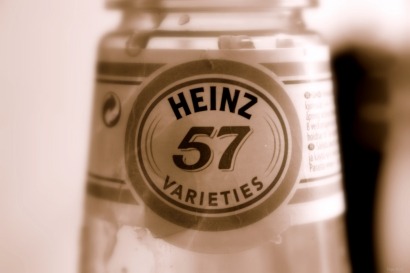
Heinz is on track towards reducing energy consumption by at least 20% globally by 2015. According to the company, much of the progress in this important area is due to the implementation in factory after factory of the company’s Sustainability Process, designed to decrease consumption by installing new technologies and more efficient equipment and by optimizing business and manufacturing processes.
“Our goal is to conserve natural resources to the greatest extent possible at all our facilities,” says Dan Fonner, Senior Manager, Indirect Procurement & Utility Services.
Heinz believes that using less energy is smart business because it benefits the planet and the company. “By addressing and reducing energy consumption, Heinz can mitigate the financial impacts of rising energy costs, reduce greenhouse gas emissions and eliminate inefficiencies in our factories and offices around the world,” the company explains on its website.
One way it is achieving such energy savings is by reclaiming process heat at its century-old factory in Muscatine (Iowa, US) for example. Heinz has partnered with engineering design consultants to evaluate new ways to optimize the production process. One focal point was reducing the amount of natural gas and water used during the cooling process in ketchup, gravy and vinegar production.
The project started with a two-part assessment of the facility that determined the potential economic and environmental benefits of devising a way to reduce natural gas and water used in cooling.
Based on the findings, Heinz invested millions to install a new heat and water reclamation system that captures previously disposed natural resources and returns them to be reused in the production process.
The accumulated water savings resulted in a decreased impact to the water treatment system, along with lower rates for sewer usage, and the regenerative process now delivers cooling water at a consistent temperature.
Indonesia turns to power of sun
The company’s Sustainability Team in Indonesia, one of our Heinz’s largest emerging market businesses, recognized several opportunities in June 2010 to deliver energy reductions at their Daan Mogot facility there. One project targeted electricity that was used for lighting 24 hours a day in their warehouse and production areas. The team came up with a cost-effective solution that tapped into a natural source — sunlight. They installed a sky light roof to reduce the use of electric lighting to only 12 hours a day in the warehouse and production areas. Plans are underway to expand this project to other areas of the facility.
The plant’s total electricity consumption was cut by approximately 50% to 4,454 kWh per month.
Elsewhere in the business, Heinz has set itself the goal of continuously improving the efficiency of its transportation network. Working closely with its logistics carriers, the company aims to meet a global goal of a 10% reduction in fossil fuel consumption and greenhouse gas (GHG) emissions per unit of production by 2015.
2015 renewables target
Equally in 2015, the company is committed to increasing renewable energy use by 15%. By the end of 2011, the company’s use of alternative energy had showed a modest improvement from the baseline year thanks to this target, although the company admitted that it remained “below target”.
That said, the company states that “renewable energy remains an option for Heinz in the future. We continue to invest in projects that we have prioritized based on our current energy reduction needs. Importantly, Heinz will continue to explore cost-effective renewable energy opportunities”. Much of these opportunities lie in making use of the company’s bioenergy resources such as in the Querofactory in Nerópolis (Brazil). Here a boiler has been installed which uses sugar cane bagasse, eucalyptus chips and corn straw for fuel, enabling the company to reduce its annual GHG emissions by approximately 50%.
Meanwhile, Heinz’s Northgate factory in Australia is capturing methane, a by-product of its wastewater treatment, and using it as an additional fuel source to produce steam. This process takes place on a large scale with 3.5 million litres of effluent water from the factory treated on average each day!
There are three bioreactors on site, each with a volume of 1 million litres. Overall, the reactors produce a significant amount of biogas - approximately 12,000 cubic metres per day during peak season.
The captured biogas is then sent to a biogas boiler to produce steam for the product sterilization process. This method of producing steam reduces coal consumption and coal-related GHG emissions.
Currently, Northgate is utilizing approximately 30% of the biogas produced, up from 10% in 2010. A project is underway to install a larger boiler that will utilize the majority of biogas produced, resulting in a total savings of 1,800 tons of coal and 4,300 tons of greenhouse gas emitted annually.
For additional information:


